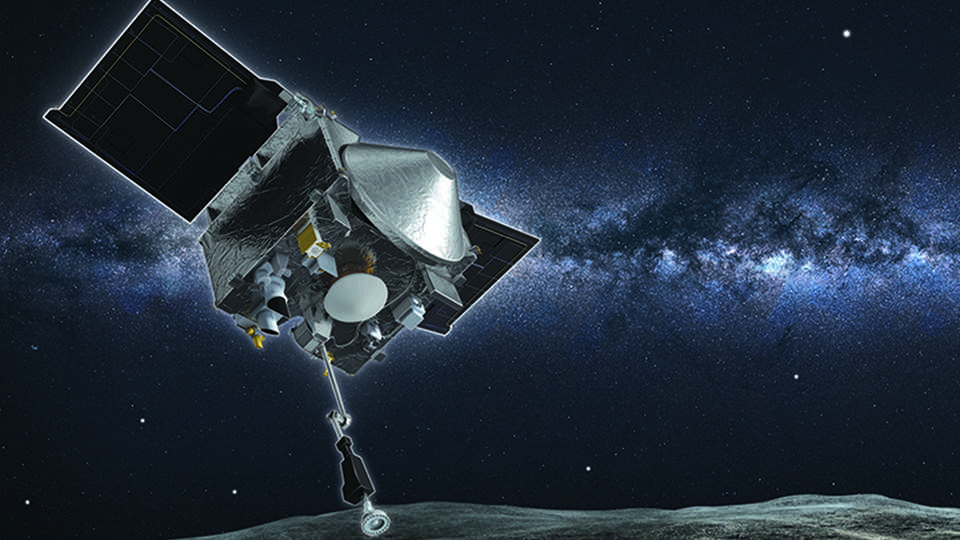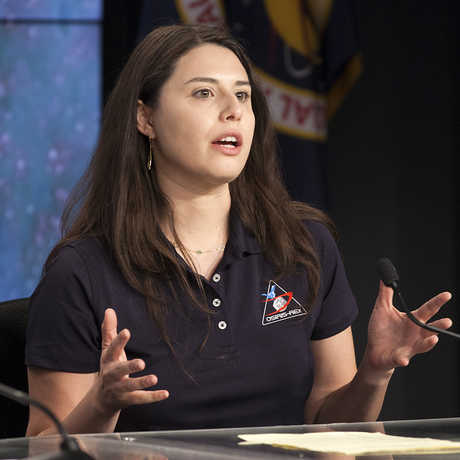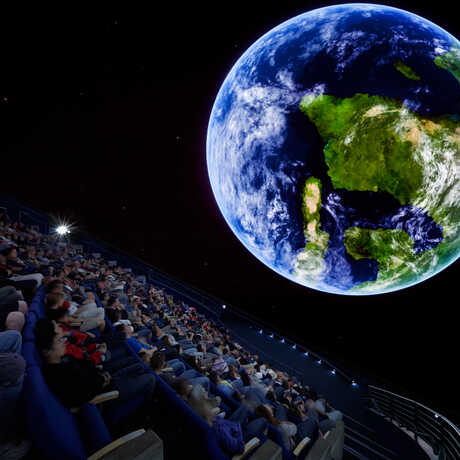Benjamin Dean Astronomy Lectures
OSIRIS-REx: NASA’s First Asteroid Sample Return Mission

OSIRIS-REx: NASA’s First Asteroid Sample Return Mission
Monday, March 4, 7:30 pm
Morrison Planetarium
Featuring Daniella DellaGiustina, Image Processing Lead, OSIRIS-REx
NASA’s OSIRIS-REx mission is the first U.S. mission to retrieve a pristine sample of an asteroid and return it to Earth for further study. The mission’s target is Bennu, a carbon-rich near-Earth asteroid that is also potentially hazardous to Earth.
Asteroids are the leftover debris from the Solar System’s formation process that began more than 4.5 billion years ago. Studying Bennu will revolutionize our understanding of the early Solar System and teach us much about planetary history and the origin of life. The OSIRIS-REx mission will expand our knowledge of the hazards and resources in near-Earth space and will serve as a precursor to future asteroid missions.
OSIRIS-REx was launched on September 8, 2016 and arrived at Bennu on December 3, 2018. The window for sample acquisition opens on July 4, 2020. The sample will return to Earth on September 24, 2023. DellaGiustina will discuss early results of the mission since OSIRIS-REx’s arrival at the asteroid in late 2018.
About Daniella DellaGiustina

University of Arizona alumna Daniella DellaGiustina remembers looking up at the big Arizona sky in wonderment during the years of her childhood that were spent in the Sierra Vista area. “I have these memories of how incredibly clear the skies were and how seeing the Milky Way was just a part of my life,” she says.
As lead image processing scientist for NASA's OSIRIS-REx asteroid sample return mission, she is involved in mapping the asteroid down to the ability to see an object the size of a penny on its surface, searching for places from which to collect a sample for eventual return to Earth.
Perhaps her experience in rock climbing on Earth helps her prepare for the challenges of a close encounter with a big rock in space. “It's really common in rock climbing to try to think about lowering the risk of what you're going to do,” says DellaGiustina, who has been a director for the Climbing Association of Southern Arizona. “A lot of what we've done with OSIRIS-REx has been to try to mitigate risk upfront, to think through problems ahead of time so that we're prepared for what's in store for us.”
From outer space to Earth's inner core, explore the universe from Morrison Planetarium's 75-foot digital dome.
